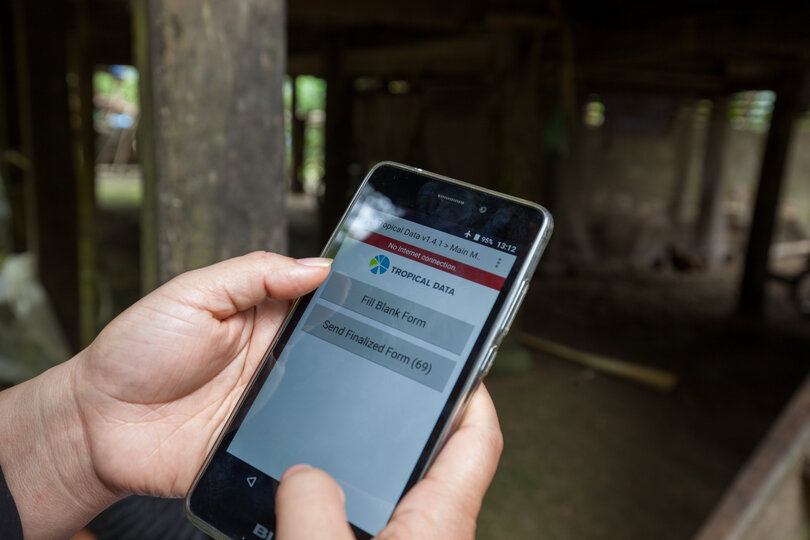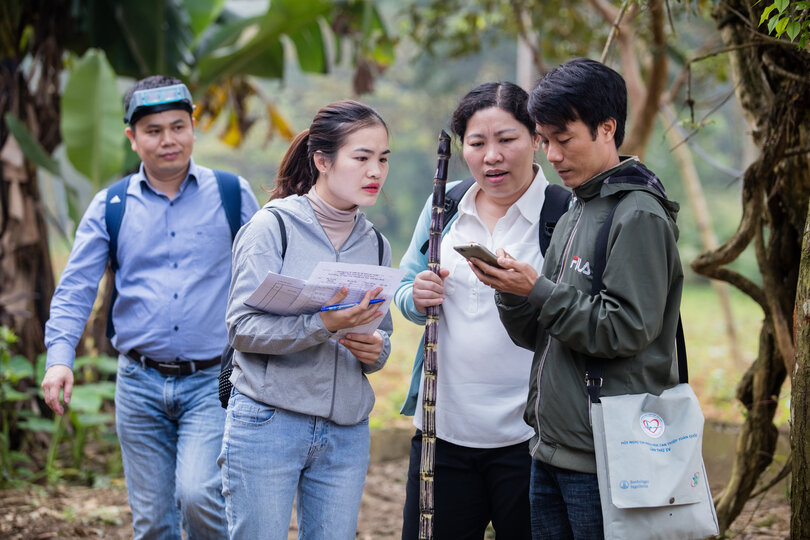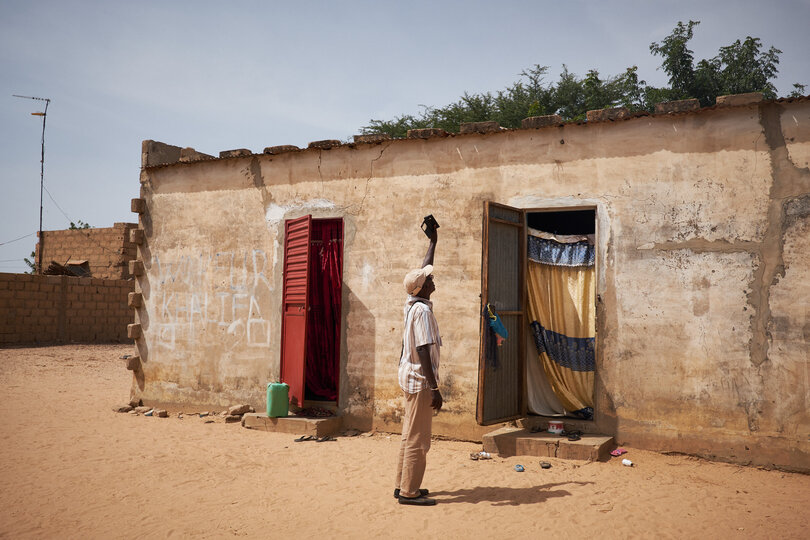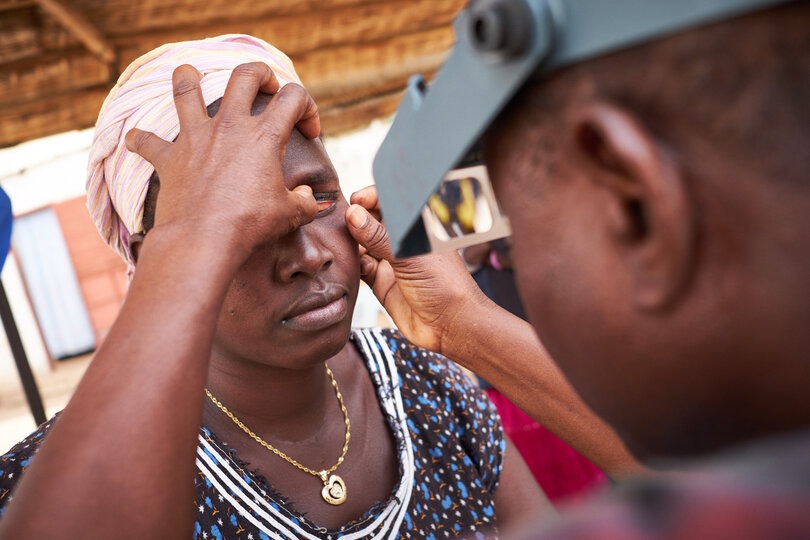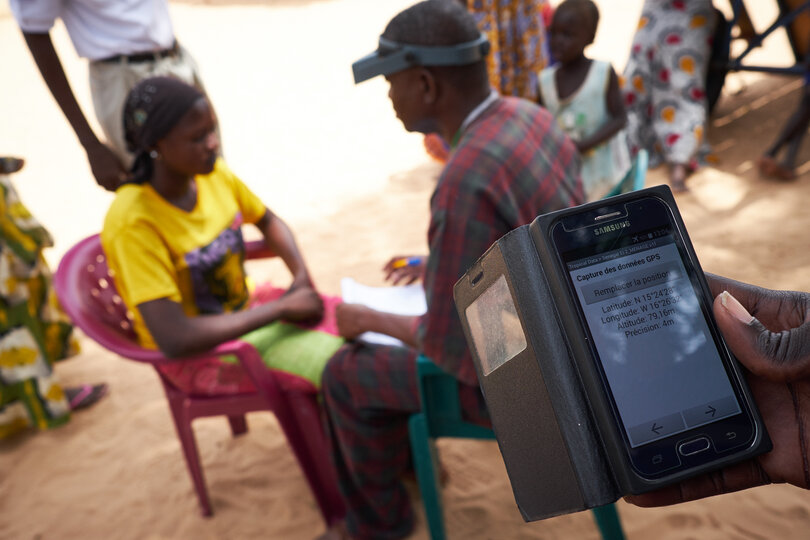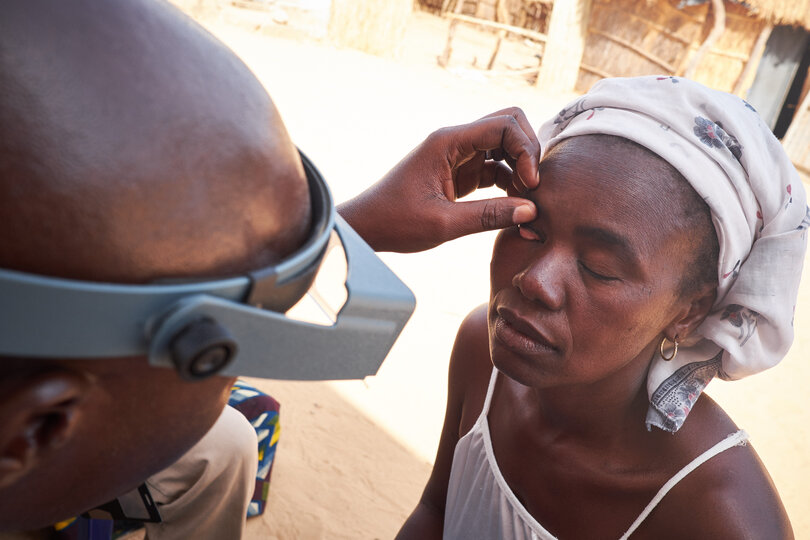Tropical Data

On the frontlines, trained eye specialists are using smartphone technology to track progress toward the elimination of trachoma.
High-quality, accurate, and standardized data are critical to properly track and assess progress towards trachoma elimination. The Tropical Data system fills this need with a cutting-edge electronic system coupled with customized advice, support, tools, and resources that countries can use to plan and carry out surveys that conform to World Health Organization (WHO) recommendations.
To date, Tropical Data has supported more than 1,900 surveys in more than 40 countries, examining more than 6 million people for trachoma.
How it works
Wearing a special set of magnifying lenses called loupes, trained eye specialists inspect the eyelids of an individual and relay their findings to a colleague standing nearby who notes the result in an application on their smartphone. From the smartphone, the data goes into a cloud-based server, where it can be accessed, analyzed, and used for programmatic decision-making through a secure web portal.
Using Tropical Data, countries can quickly gather and analyze data to determine where interventions are needed and when they can stop. Using high-quality data for decision-making, countries and partners are able to allocate resources where they are needed and provide the evidence when the disease has been effectively eliminated.
USAID’s Act | East program is supporting countries to eliminate trachoma, providing assistance for treatment campaigns, surveys to measure impact, training, dossier development and more. Tropical Data is an essential part of supporting countries to track progress toward trachoma elimination and build local capacity to ensure health gains are sustained.
The team behind Tropical Data is a consortium of scientific, technological and implementing partners including RTI International through the U.S Agency for International Development’s Act to End NTDs | East program, the International Trachoma Initiative, Sightsavers, and the London School of Hygiene and Tropical Medicine.
